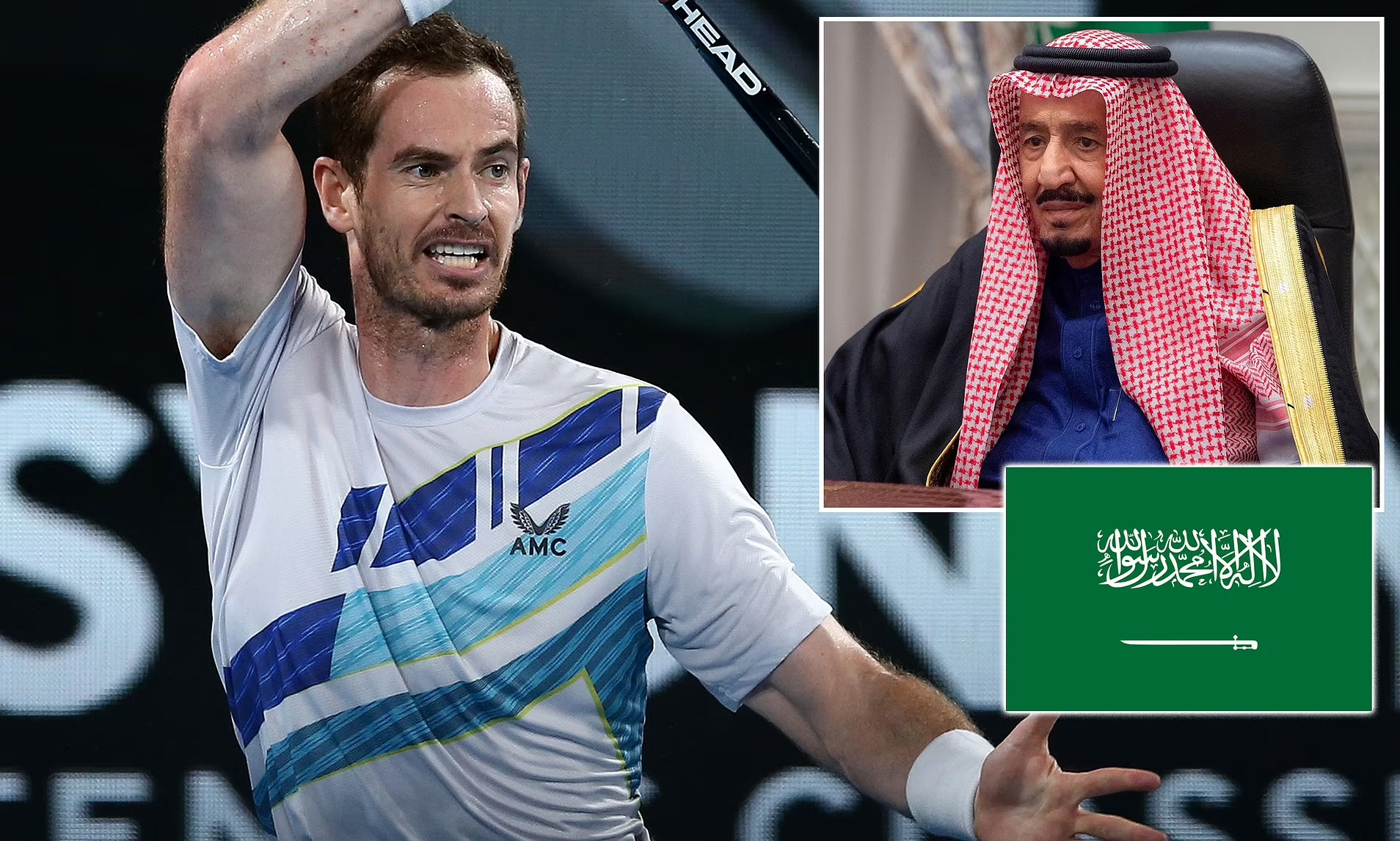
In Standing Firm Against The Allure Of A Substantial Paycheck, He Has Reaffirmed His Legacy As Not Just A Champion Of Tennis But A Champion Of Values That Transcend The Game Itself.

In a bold move that has captured global attention, tennis legend Andy Murray has publicly dismissed the Saudi
Arabian offer of a $6 million exhibition match. His outspoken stance not only reflects his personal values but also
brings to light broader concerns about the ethical implications of sports washing in a region often criticized for its
human rights record.
Murray, a three-time Grand Slam champion and former world number one, has long been an advocate for social
justice and integrity in sports. In a recent press conference, he articulated his reasons for declining the lucrative
offer, emphasizing the need for athletes to consider the impact of their participation in events held in countries with
questionable human rights practices. “For me, it’s not just about the money. It’s about the message we send,” Murray
stated. “I don’t feel comfortable being part of something that could be seen as an endorsement of a regime that does
not uphold the values I believe in.”
This rejection comes amid a growing trend of high-profile athletes facing the dilemma of lucrative opportunities in
regions with controversial political backgrounds. Saudi Arabia, with its substantial investments in sports and
entertainment, has made headlines for hosting high-profile events across various sports, including boxing, Formula
1, and now tennis. However, the kingdom has also faced intense scrutiny over issues such as freedom of expression,
women’s rights, and the treatment of dissenters.
Murray’s decision is particularly significant given the ongoing dialogue around the role of athletes as public figures
and their responsibilities beyond the court. Many fans and commentators have praised him for prioritizing principles
over financial gain, calling it a courageous move in a sports landscape increasingly influenced by money and
sponsorship deals. “Athletes have a platform, and they should use it to stand up for what’s right,” said a fan during a
discussion on social media. “Murray’s refusal to participate sends a powerful message.”
In a sport where exhibition matches often attract top-tier talent with enticing financial packages, Murray’s decision
stands as a testament to his character and the weight of ethical considerations in professional athletics. As more
athletes and sports organizations grapple with similar choices, his stance may encourage others to take a more
principled approach to their participation in international events.
Furthermore, Murray’s comments raise important questions about the future of sports diplomacy. While many argue
that engagement through sports can foster dialogue and cultural exchange, others caution that such engagements
might inadvertently legitimize oppressive regimes. Murray’s refusal to partake in the Saudi exhibition is a call for a
deeper reflection on how athletes and organizations can engage responsibly in a globalized world.
This incident also underscores the potential for division within the sports community. While some may view
Murray’s stance as commendable, others may see it as an unnecessary politicization of sport. Critics argue that
athletes should separate their personal beliefs from their professional endeavors, especially when significant
financial rewards are at stake. However, Murray’s approach is likely to resonate with a growing segment of fans who
are increasingly aware of social issues and expect their heroes to reflect those values.
The reverberations of Murray’s decision extend beyond tennis. As the sports world continues to confront issues of
ethics and integrity, his stance could inspire a movement among athletes to evaluate the implications of their
participation in international events. As athletes become more engaged in social and political issues, the lines
between sport and activism continue to blur, creating a new paradigm for how sports are perceived and consumed.
In an era where the intersection of sports and politics is more pronounced than ever, Andy Murray’s rejection of the
Saudi Arabian exhibition is a significant chapter in the ongoing discourse about the responsibilities of athletes. It
challenges not only the norms of professional sports but also encourages other athletes to reflect on their own values
and the implications of their choices.
As the tennis season unfolds, fans will undoubtedly continue to watch Murray’s career with keen interest, not just for
his on-court performances but also for his unwavering commitment to principles that resonate far beyond the sport.
In standing firm against the allure of a substantial paycheck, he has reaffirmed his legacy as not just a champion of
tennis but a champion of values that transcend the game itself.







